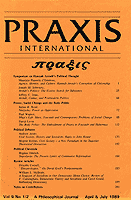

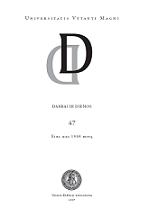
Keywords: search; community; identity; Czeslaw; Milosz; during; epoch; individual;
The object of this analysis is to outline the view that Czesfaw Mifosz held of the world, which has been referred to as the epoch of the individual. This paper also examines societal guidelines of identity. It appears that the beginnings of the Czesfaw Mifosz epoch might be sought in the seventeenth century when the culture of democracy among the nobility in the Grand Duchy of Lithuania was developing and Catholic tendencies were becoming stronger. At that time, attitudes of tolerance towards religious confessions were also forming. Geographic borders were changing constantly. For example, in the 17th century, the borders of the Grand Duchy of Lithuania changed whereas, in the twentieth century, it was those of the middle of Eastern Europe. Despite such societal changes, the values which formed in the seventeenth century survived throughout the period under discussion. Although repressed, the society was consolidated and it sustained itself until its split at the end of the nineteenth or beginning of the rwentieth century. Then a new subject of society appeared - the intelligentsia, born from the peasantry. At this time, the traditional values of the nobility were enclosed within the family. Such a state helped individu¬als adjust during the first stage of sovietization. Individual needs, valued during the times of the Commonwealth of Two Nations, were forced into the background. The search for identity was concentrated in the personality of Czesfaw Mifosz himself and his personal experiences. This search attempted to highlight the changes and traditions of the society, which generated new values in nineteenth century society preceding its splinter. While most values were changing, one underlying value, religion, was the exception. Furthermore, it had retained national characteristics. A construction of society based on religious communities could thus bring the elite closer to the general public.
More...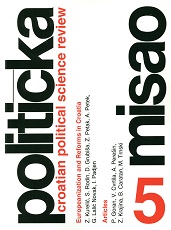
Keywords: Bologna Declaration; Bologna Process; open method of coordination; higher education
The author addresses the issue of diverging national readings of the key Bologna concepts against the backdrop of national traditions of higher education – comparability of degrees, finality of qualifications relevant for the labour market, implementation of the ECTS system, and mobility. The basic proposition of the paper is that, in circumstances of semantic dissonance, the open method of coordination (OMC) is barely effective and may create a number of disparate effects. The OMC, having the form of free discourse and lacking enforcement mechanisms, is likely to encourage states to insist on their traditional concepts. On the other hand, a hard law method and guided discourse applicable within the legal framework of the EU may serve as a corrective force. The same counts even more in the pre-accession period if proper conditionality mechanisms are applied.
More...Keywords: national identity; Englishness; multiculturalism; ethnicity; immigration;
Anglų priskirtis britams dėl dažno šių objektų neskyrimo nurodo ir anglų identitetą, kuris dažnai išskiriamas kaip toks. Kol Škotija, Velsas ir Šiaurės Airija turėjo galimybių konstruoti stiprų vietos identitetą supriešinant jį su anglų identitetu, Anglija, be jokio atitikmens Kitiems, niekuomet nesiekė pristatyti savęs taip kaip tą darė Škotija ir Velsas. To priežastis ta, kad daugelis elementų, sudarančių kritiškąjį identitetą, kurį anglai sau priskyrė ilgus metus, prarado savo tinkamumą (šiandienos atitikimą).Šiame straipsnyje yra teigiama, kad yra galimybių išspręsti Anglijos identiteto krizę: Britanija kaip šalis visuomet gebėdavo savo isuomenėje tinkamai integruoti skirtingų kultūrų atstovus. Jei Anglija galėtų save pristatyti kaip pilietišką, ne etiškai britišką, kaip ji buvo suvokiama ilgus amžius, krizė gali tapti kitokia, pasikeitimo pradžia, įtraukti ir kosmopolitiš¬ką visuomenę, kuri skatina ne žmonių atskirtį (išryš¬kina skirtumus), tačiau priima ir kultūrų skirtumus, kurie yra svarbūs kuriantis bendrai kultūrai, kuri gali būti sukurta mokantis kritiškai vertinti ir peržiūrėti istoriją. Tai padėtų piliečiams, laikantis emocionalu¬mo, įsitraukti ir dalytis socialiniu ir kultūriniu Britanijos paveldu. ----- The subsumation of Englishness into Britishness to the extent that they were often indistinguishable has contributed to the fact that at present an English identity is struggling to emerge as a distinct category. While devolved Scotland, Wales and Northern Ireland have been able to construct a strong sense of local identity for themselves in opposition to the dominant English, England, without an equivalent Other, has never had to explain herself in the way Scotland or Wales have had to. But now, faced with the af¬ter-effects of globalisation, devolution and an increasingly cosmopolitan and multicultural society as a consequence of de-colonisation and migration, the English find it difficult to invent a postimperial identity for themselves. This paper argues that there are chances and possibilities to be derived from the alleged crisis of Englishness: Britain as a nation-state has always accommodated large numbers of non-English at all levels of society. If England manages to re-invent itself along the lines of a civic, non-ethnic Britishness with which it has been identified for so long, the crisis might turn into the beginning of a more inclusive and cosmopolitan society which acknowledges not just the diversification of the people, particularly the legacy of the Empire, but also realises that the diversity of cultures has to be accommo¬dated within a common culture. Such a common culture can be developed and nurtured by teaching a critically re-assessed history syllabus which would enable citizens to emotionally engage with and share in the social and cultural heritage of Britain.
More...Keywords: African Philosophy;
More...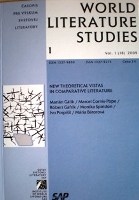
Keywords: Národné identity. Konštrukcia identity. Naratívny diskurz. Naratívny hlas. Stereotyp; Ja a iný; Generická identita; Top-down a bottom-up postupy; Stratégie rozprávania a písania príbehu
Although the concept of identity is a strategic and positional concept, common sense tends to think of national identities as unproblematic categories, pointing to essential qualities in much the same way that natural objects do. Identities, however, are constructed by highly divergent discourses and practices. This situation calls for a contextual approach to identity building that will trace the historical contingency and the plurality of the symbolic processes that are cloaked in such constructions. Identity, maintains Stuart Hall, is constituted by the reiterative power of discourse to produce that which also names and regulates. It is a strategic and a positional category, ‘never singular but multiply constructed across different, often intersecting and antagonistic discourses, practices and positions’. (Hall, 4) At the very core of identity there is always an essential level that we might call ‘narrative identity’ (Randall, 54- 56), consisting of the stories we tell to ourselves about ourselves and the stories we or others tell to others, or stories that are told to others about ourselves – that is, all the stories in which we are included. In the following pages I shall focus on several aspects of identity building, seen as a discursive and an historical instance: the narrative devices that foster a range of both top-down and bottom-up processes of symbolic projection; the basic interaction between stimulus data and stored background knowledge in identity building; the relationships between self-identifications and stereotype representations of the Other; the crisscrossing of inside and outside literary projections, triggered off by identification.
More...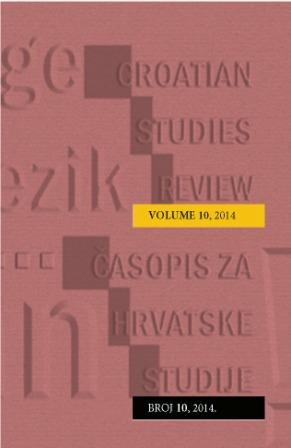
Keywords: Burgenland Croats; minority; identity; language biographies
Burgenland Croats are members of a Croatian minority who have been living in Austria and neighbouring countries for more than 500 years. This paper aims to give an insight into the strategies of identity construction in this Croatian community. The main issues we are dealing with are collective versus individual identity, and how this identity or identities are constructed. Two perspectives were taken into consideration: the perspective of Burgenland Croats and the perspective(s) of outsiders: whether they are Austrians, people from other (neighbouring) countries or Croats from the ‘old homelan
More...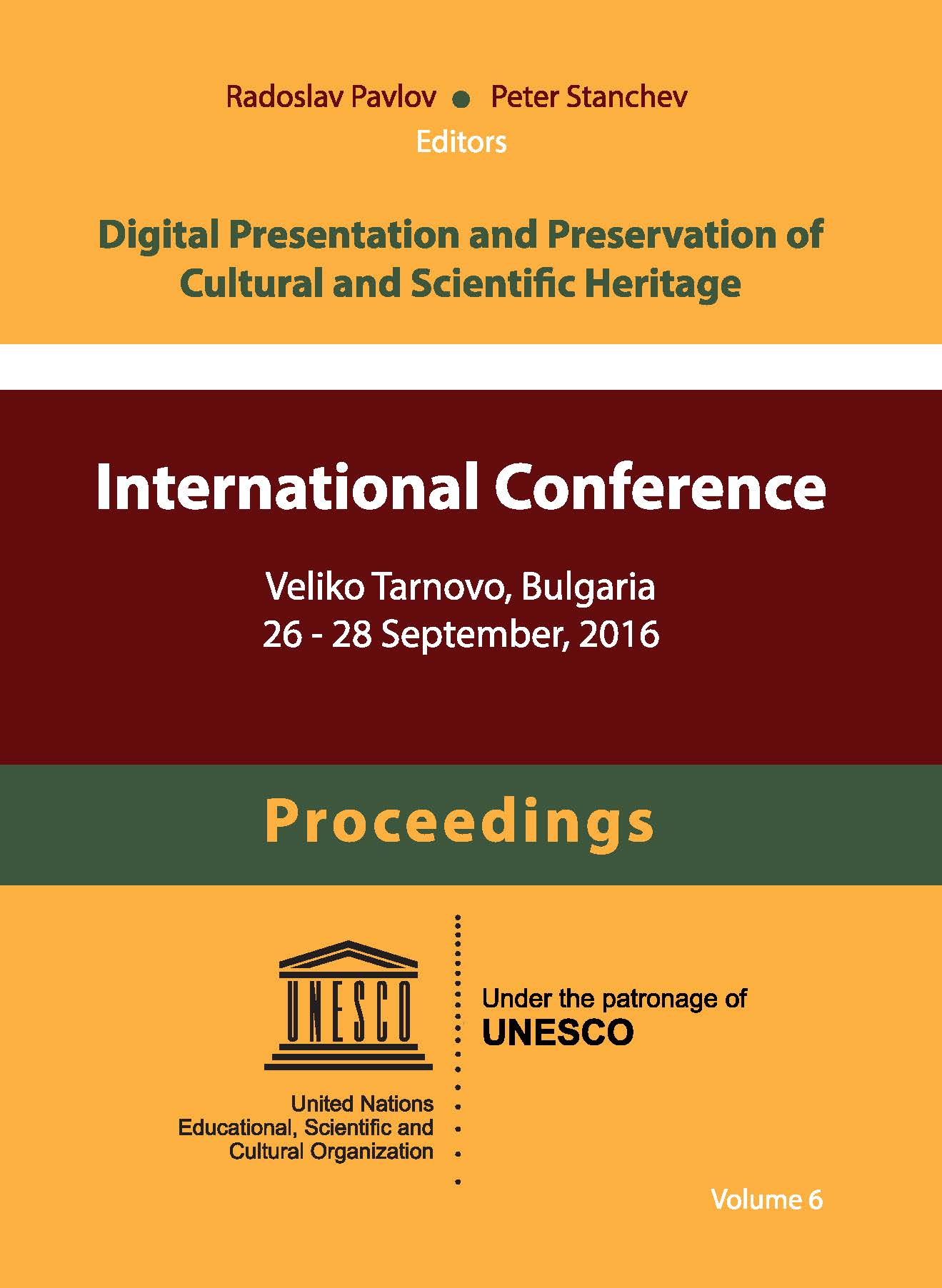
Keywords: digital repository; metadata; ontology; semantic annotation; semantic search; semantic interoperability
Semantic search augments the goals and scope of traditional search and information retrieval tasks. The paper analyzes the main aspects of semantic search and the corresponding features of some popular semantic search systems. The presentation is focused on a discussion of the implementation of a successful project in building modern semantic search engine. A brief analysis of the gained experience in some experiments with free software tools for advanced semantic technologies accomplished within the Master’s degree course in Semantic Technologies at the Faculty of Mathematics and Informatics, Sofia University, is presented and the main techniques used for image and video semantic extraction are discussed in addition.
More...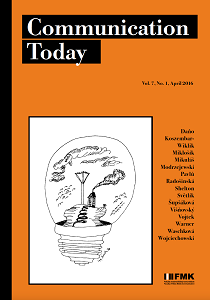
Keywords: Google Answer Box; search engine marketing; search engine optimisation; search query
Changing behaviour of users searching online is reflected by search engines that strive to provide best search results to retain the loyalty of their users and increase their market share. Google as the global market leader innovates its services constantly and works on improving the usability of its search results. Introducing Google Answer Boxes has changed the way Google presents information on the one side and the way how users search for the information on the other. For website owners it is vital being included in search results and even more being excerpted in the Google Answer Box. Here, the user can see much more content from the website and thus, the owner can build brand awareness and gain extra conversions as well. In this article, the authors aim at analysing the benefits and dislikes of Google Answer Boxes for three different groups: Users, Google and website owners. The authors analyse one of the Google Answer Box’s form deeper by using a case study. Results of primary research are further presented in the form of pointing out at strengths and weaknesses of this technology in application for different entities/audiences. The main objective of the text is to analyse differences in the frequency of the occurrence of Google Answer Boxes when searching for different phrases beginning with “How to”, “I want to buy” and “I want to do”. The empirical study includes 30 different search phrases in 4 languages, thus analysing 120 search results in total. The authors analyse the status quo regarding the appearance of Google Answer Box in any of its different forms for these types of search queries and identify differences in the frequency of Google Answer Box appearance in the Australian, German, Czech and Slovak version of Google.
More...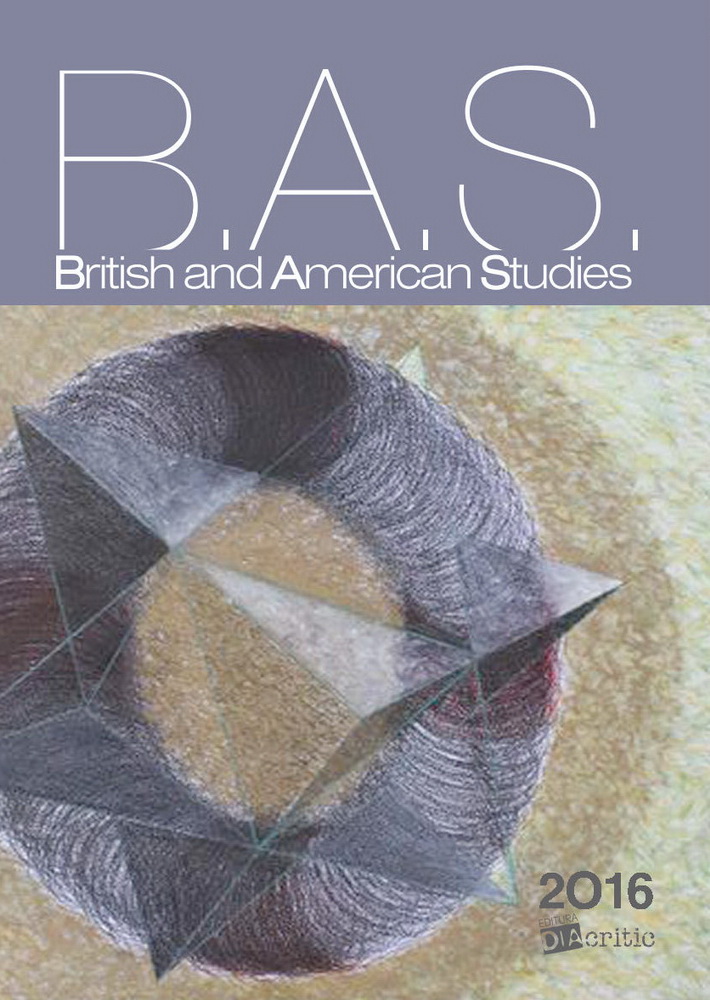
Keywords: identity;narrative;representation;trauma;
Post 9/11 America was a nation in search of a narrative that could help it rebuild the threads that had been severed by the trauma of the attacks. The paper explores the different ways in which this shattered narrative had been reconstructed in the aftermath of the terrorist attacks of World Trade Centre.
More...Keywords: Max Blecher; identity; ipseity, scripturality; hybrid narrative discourse; unrealities;
In one of his published articles, Blecher writes about the concept of repetition and the individual‘s desire to relive a past moment in the fullness of its quality. Adventures is such an endeavour – from the perspective of anamnesis, the narrator returns following the time line, living in a double way: nostalgically and textually recomposed – as the two experiences are reintegrated into the present. Thus, the author, much like the melancholic young man of the ―unrealities,‖ turns back in time, walking back in his footsteps, perhaps deepening them up to the Yeti contour of the writing, so as not to be caught in the symbolic and reductive loop of immediate reality. The only means to cheat death and the platitude of existence – crushed and immobilized in plaster – is the ―card game.‖
More...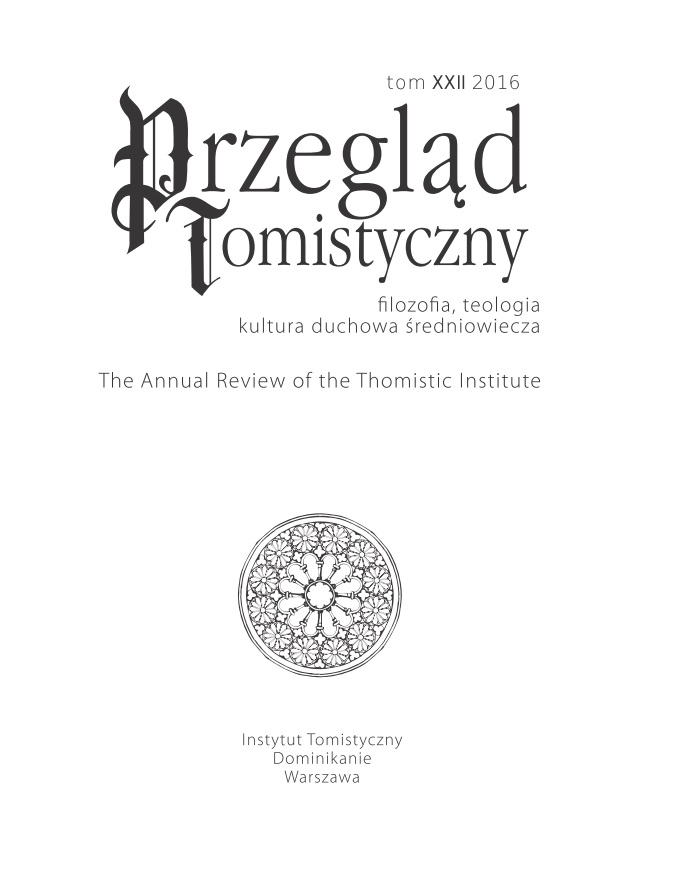
Keywords: virtue ethics; ethical naturalism; Jonathan Haidt; Thomas Aquinas; rationality; religion; etyka cnoty; naturalizm etyczny; Tomasz z Akwinu; racjonalność; religia
New possibilities of studying the activity of the human brain and new technologies of human enhancement have intensified the voices calling for more science in ethics. This often implies embracing a version of naturalism. The recent revival of virtue ethics seems to strengthen this trend and make it more promising. Joining together contemporary virtue ethics with naturalism, however, is highly problematic. In this paper, I reflect on several conditions for a happy coupling between virtue ethics and naturalism. In the first part, I mention Jonathan Haidt’s proposal as an example of such promising and problematic coupling; I focus on only one element that could undesirably weaken virtue ethics. In the second part, I indicate a way in which this element might be modified. This suggestion could also be beneficial to another general problem in contemporary naturalistic ethics, namely, its relation to religion. Scientifically-oriented authors love to denounce prejudices and presuppositions in what conservative ethicists say. These presuppositions are sometimes identified as religious. A scientific orientation, however, does not preclude anyone from other prejudices and presuppositions, including religious ones. I suggest that reading some religious texts might help in detecting such influences.
More...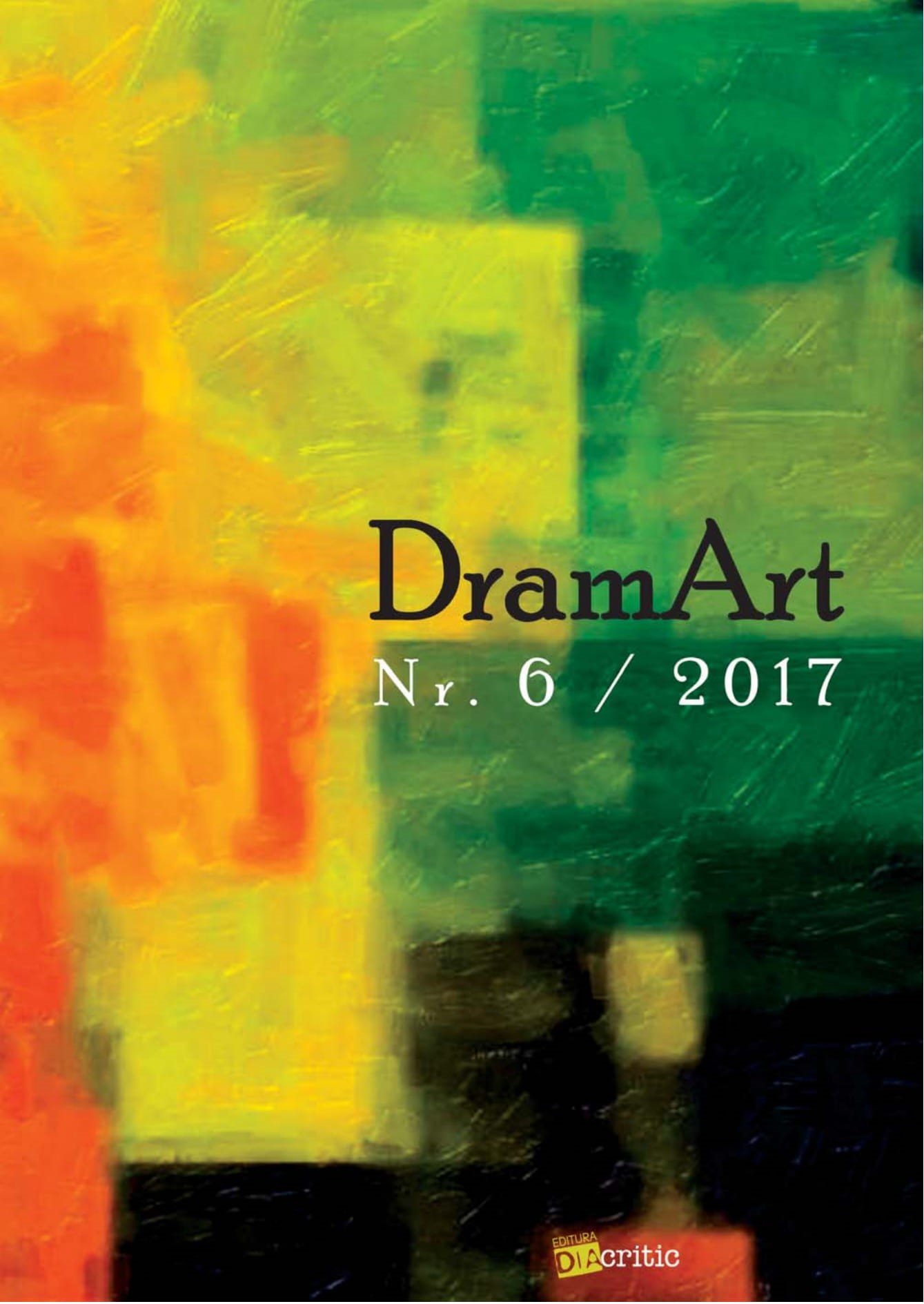
Keywords: Dante Alighieri; Divine Comedy; Ravenna Festival; “Inferno”; Teatro delle Albe.
Ravenna Festival 2017 opened with an itinerary show based on the “Inferno”, the first part of Dante Alighieri's Divine Comedy. The production built on the idea of social engagement is packed with political messages, criticizing the corrupt contemporary society. Each spectator is actually a participant of the event.
More...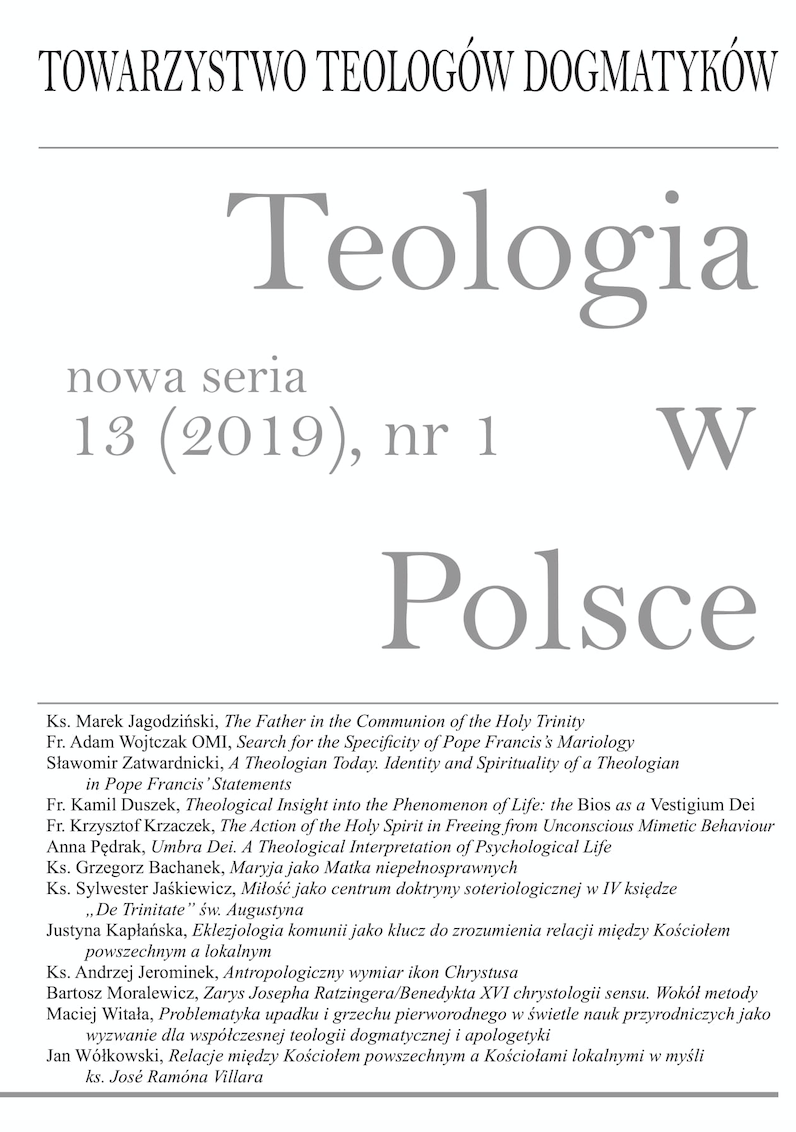
Keywords: Mary; Mariology; Pope Francis
Francis is a Marian Pope. His six-year-long pontificate so far has resulted in a large number of speeches dedicated to Mary (about 130). The repetitiveness of certain themes and expressions allows us to speak about the specificity of his Mariology and to bring out new and original themes. The article does this in two points. The first concerns the methodology of the Francis’ Mariology. It is a “Mariology in context,” salvific-historical, respecting the principle of nexus mysteriorum. Its loci theologici are the Bible, interpreted in its entirety;conciliar Mariology; theologia mentis and theologia cordis, which is born out of religious experience. It has an eminently pastoral colour. The second point,out of a broad thematic range, distinguishes the statements concerning Mary which are close to Francis: The Mother of God – a synthesis of grace and faith;Mary – the personal concretization of the Church; Hodegetria – the first and perfect disciple of Christ; the Handmaid of man; the Icon and Mother of Mercy;the Star of the New Evangelization; the Queen of tenderness.
More...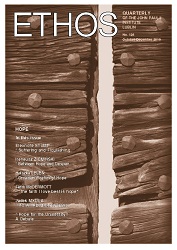
Keywords: hope; peak experience conception; Maslow; optimal experience conception; Csikszentmihalyi; flow;
The study focuses on the phenomenon of hope conceived as an orientation which makes it possible for a human being to deal with the uncertainty of the future. The author takes into consideration the new ‘processual’ sense of the concepts and meanings helpful in understanding the conditions necessary to achieve the state of hope. The study makes use of theoretical analysis, in particular of the concepts of ‘peak experiences’ and ‘optimal experiences,’ as worked out by, respectively, Abraham Maslow and Mihaly Csikszentmihalyi. The phenomenon of hope has been described with a special focus on the ‘process’ that allows a human being to experience it.
More...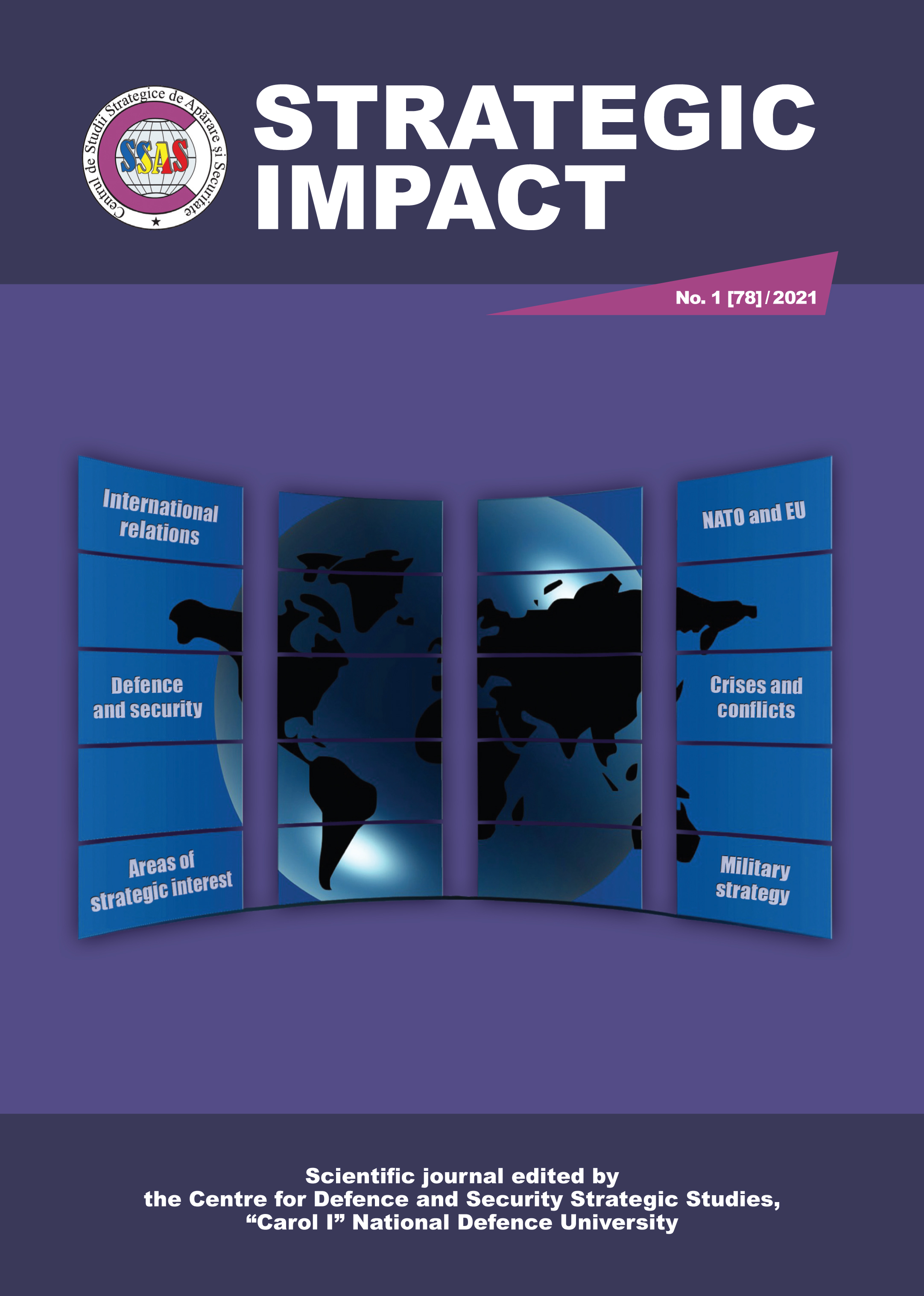
Keywords: economic intelligence; economic security; economic espionage; competitive intelligence; business intelligence; industrial espionage;
In the last decade, we have witnessed a significant shift in the way local, regional, or global confrontations are performed with specific roles being attributed to the economic intelligence systems. By executing intelligence and counterintelligence operations, the economic intelligence systems are operating in confluence areas bringing together intelligence communities, governmental and diplomacy apparatus, and the business actors. Also, recently, revamped forms of warfare have illustrated how economic leverage is frequently used in combined and versatile hybrid interventions against democratic state stability and legitimacy. Despite this intense employment of economic advantage, economic intelligence represents one of the concepts that is still looking for conceptual clarity as it is frequently used in conjunction with other proxy terms (i.e., business intelligence, industrial espionage, competitive intelligence, economic security, and economic espionage), while its meaning ascribed in different contexts is rarely explicit. Starting from the premise that when lacking clarification, concepts become broad, ambiguous, and difficult to apply, the paper aims to bring forward conceptual clarifications by exploring and comparing various definitions existing in the literature while seeking to advance an operational definition for economic intelligence.
More...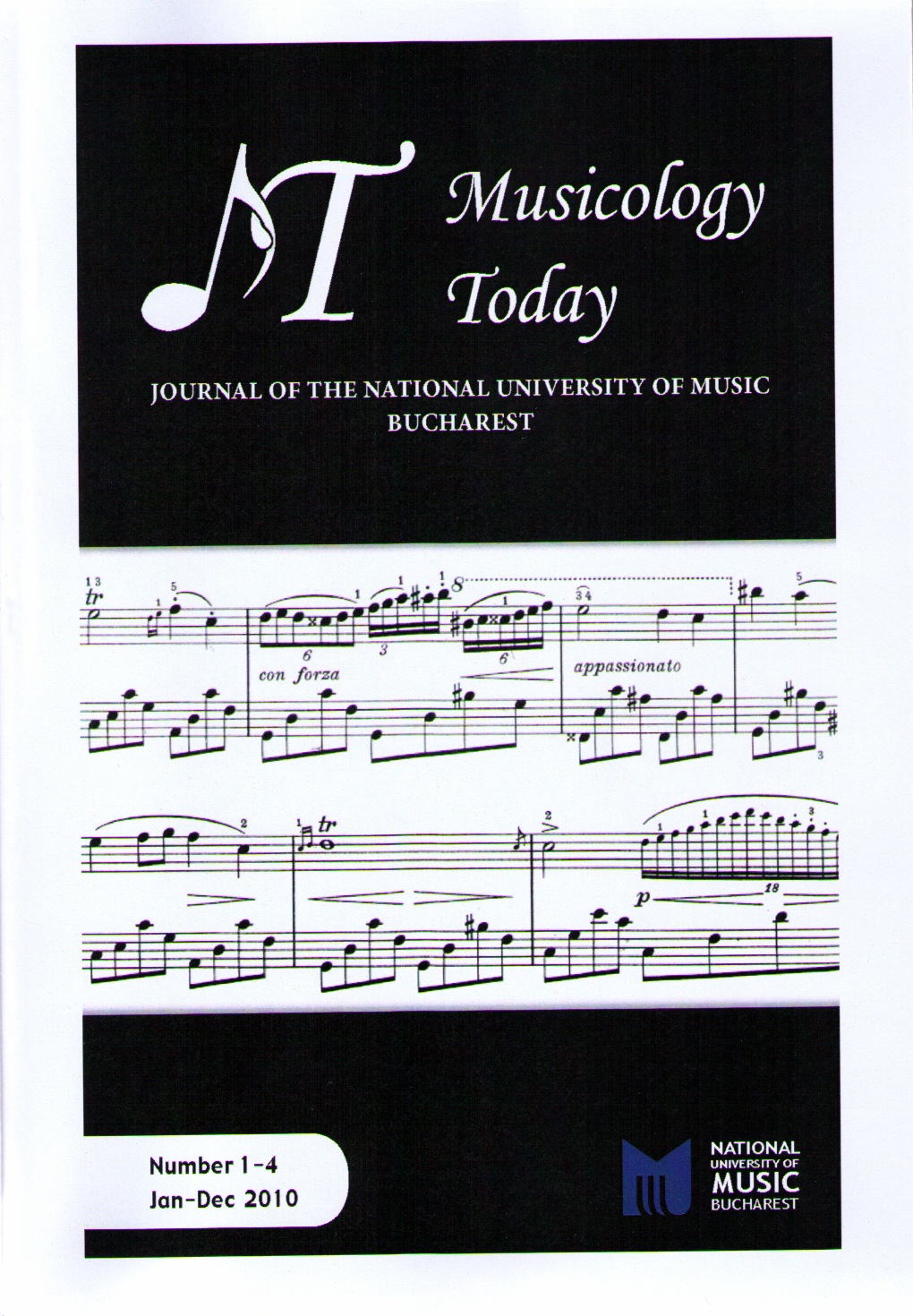

Keywords: Adjectives; corpus; English; noun phrase; postposition
Single postpositive adjectives as a minor type of noun postmodification in English are surveyed using a corpus sample to assess their retrievability, to provide an overview of the morphematic types, and their register distribution. Applying an ancillary test of positional mobility to characterize the postpositive occurrences, four broad groups are delimited. Postmodification by a-adjectives and adjectives in terminological compounds is infrequent, whereas the majority of the sample is constituted by adjectives in -able/-ible and in -ed, whose post-head position involves changes in semantic meaning, as well as occurrences which cannot be accounted for by the constraints stipulated in grammars. The frequency and patterning of available, responsible or necessary call for a re-evaluation of the function of postposition, encompassing all frequent forms and taking into account reference and other textual factors.
More...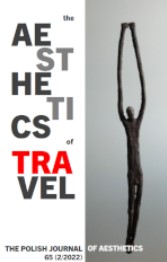
Keywords: Travel; Authenticity; Irony; Counterculture; Bob Dylan;
This article deals with the theme of a road tour in the context of American counterculture and the environment of the music created by Bob Dylan, sometimes characterized as politicized folk music, sometimes as rock & roll. The primary reference is the film Rolling Thunder Revue (2019), directed by Martin Scorsese, resulting from a tour in the 1970s. The reference to the novel On the Road by Jack Kerouac is notable, and the presence of poet Allen Ginsberg in the troupe reinforces the context of a generation and an era. The article aims to reflect on the relationship between the original tour, the editing of the new film by Scorsese, and the construction of heroism that oscillates between truth and falsehood. In this construction, we consider, on the one hand, the playful and provocative game between fiction, reality, and authenticity; on the other, the political emphasis that raises ethnic and racial issues as the main components of critical and cultural reminiscence in the tour footage as recomposed in the film.
More...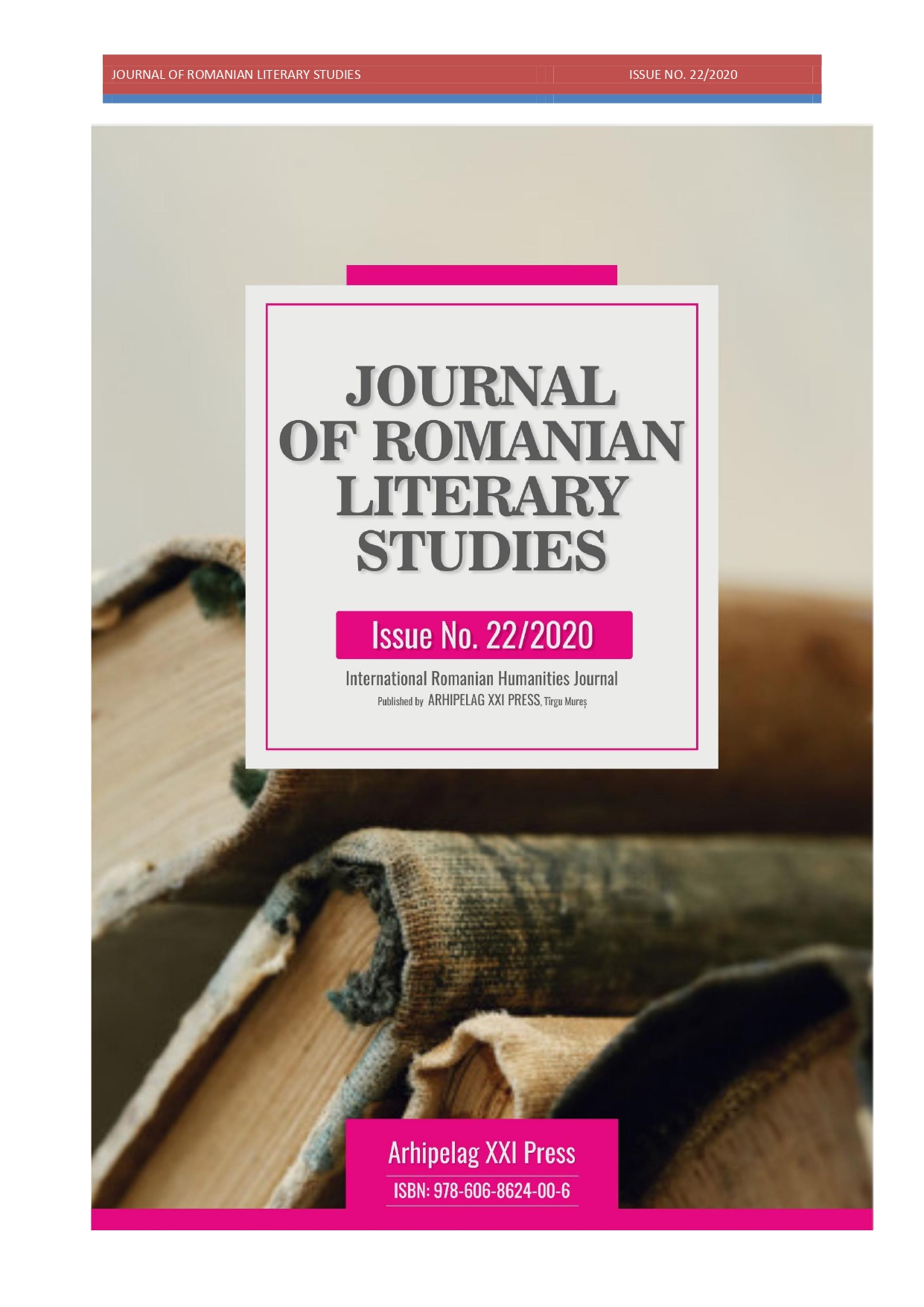
Keywords: culture; individualism; collectivism; emotional arcs; rags-to-riches;
The purpose of this paper is to analyse the way the American Dream is depicted in three novels written by contemporary authors: Brooklyn by Colm Toibin, first published in 2009, Americanah by Chimamanda Ngozi Adichie, published in 2013, and Rebela by Sabina de Rochefort, published in 2016. All three novels start with the great hopes associated with their departure for America, yet not all of them end up with finding what the characters expect. Eilis, Ifemelu and Amellia follow a different trajectory with respect to their final reaction to the American Dream. Eilis decides her future is in America, with the Italian husband she had met, while Ifemelu decides that her future lays for her in her native country with Obinze, and as for Amelia, she tries to break free from the influence of Samuel, a rich man who had proposed for her an arrangement to stay with him, trying to gain control of her own life. The paper will use the theoretical frame of the Hofstede’s individualism vs collectivism dimensions of cultures related to the American Dream to show the way it is portrayed in the three novels, as well as the theory of the emotional arcs of stories by Reagan et al (2016). The progress of the heroines is dependent on cultural values and on the way the story is shaped as a pattern, be it rising, falling, evolving in-between the two, and rising again in the end, as a result of their drawing their conclusions and better understanding themselves. The search for the American Dream overlaps with some moments of identity crisis for the characters in the three novels.
More...